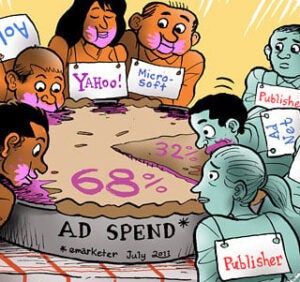“Data-Driven Thinking” is written by members of the media community and contains fresh ideas on the digital revolution in media.
Today’s column is written by Matt Voda, CEO at OptiMine.
At a recent attribution conference, I was surprised to see that the term “attribution” holds many different meanings to different people in the advertising industry.
Some believe attribution is all about identifying the magic sequence of ads and touch points that unlock the customer conversion. Others may define attribution as assigning a special weight to an ad based on a fractional formula. Throw in some murky terminology, such as “top-down,” “bottom-up” or “u-shaped,” and you can see how the topic can inspire confusion.
In some regards, this may just be a symptom of a nascent, emerging field. Market confusion precedes the coalescence and convergence around best practices, methodologies and standardized terminology. Only after these key steps does a mature market begin to take shape.
But the confusion creates some real problems in the meantime. For example, a blind adherence to a methodology can cause major damage for marketers. And real opportunities may be missed because overly narrow definitions of marketing attribution drive marketers to believe they have their attribution bases covered.
On the methodology point, there is an overreliance in the market on the notion that the only way to achieve attribution is to track every customer across every device, for every ad in the mix. Not only is this impossible, it ignores the millions of reasons that have nothing to do with advertising that compel a customer to make a purchase.
Factors like hidden needs, personal beliefs, the power of the brand promise, the economy and even the day’s weather can all drive purchases in ways that are more impactful than ads. Missing these elements can cause harm by overassigning credit to an ad that may have had zero value or by undervaluing harder-to-track marketing efforts that boosted awareness or pre-purchase education.
When marketers blindly assume there is only one way to solve the measurement problem, other bigger problems are spawned. Narrower definitions of attribution are just as problematic. Some think of attribution as only pertaining to digital efforts, but view-through conversion attribution focused on display and paid search blindly ignores those pesky TV, print and radio ads that were running at the same time.
Agile, action-oriented marketers may rush to certain attribution “answers,” but a dose of definition upfront is best in this case. Marketers should start with a more general definition of attribution that gets to the overall, essential goal: measuring the value of the impact or contribution a marketing campaign or an individual ad has on an outcome.
From this common starting point, marketers can then branch off to the other various pieces of the puzzle – targeting, personalization methodologies or engagement – without missing the important, core question: What are all of these ads worth?
Follow Optimine (@OptiMineInc) and AdExchanger (@adexchanger) on Twitter.













